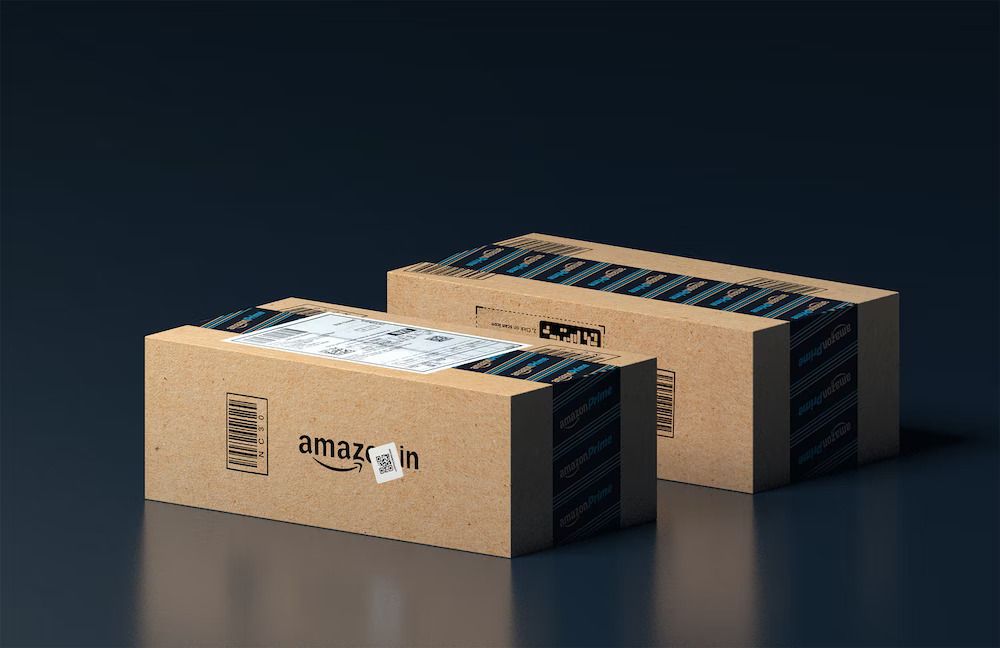The 'Curious' Case of Amazon

A Salesperson's Perspective
Introduction
Many of what Sun Tzu said is still relevant today in a variety of fields such as business, politics, and psychology. Clearly, his teachings are also relevant to the young and budding salespeople of tomorrow. Today, we shall start with one of his one of his prime teachings.
“If you know the enemy and know yourself, you need not fear the result of a hundred battles. If you know yourself but not the enemy, for every victory gained you will also suffer a defeat. If you know neither the enemy nor yourself, you will succumb in every battle.”
― Sun Tzu, The Art of War
For anyone remotely interested in selling today, Amazon is a potential enemy. I do not mean that to demean the amazing firm. What Jeff Bezos and his team have accomplished over the last quarter century is simply unfathomable. Amazon has not just revolutionised industries, is has redefined the very meaning of revolution. In 2018 Champaign Williams from the Forbes wrote that Amazon has disrupted a dozen industries since its 1997 IPO. These industries are brick-and-mortar retail, grocery delivery, meal prep, real estate referrals, gadget specialists, movie and tv content, music streaming, social media, mobile phones, healthcare industry, package delivery services, and cloud computing. Looking back today over five years later, one could clearly see that Amazon has in fact transformed the face at least the brick-and-mortar retailing, cloud computing, movie and TV content, and package delivery industry. Beneath each of these transformations, there appears to be a predictable pattern that is grounded in classical economics. More specifically, the Agency Theory.
Agency Theory
Simply put, the Agency Theory is an economic theory that tries to explain the relationship between a principal and an agent. The principal is a person or organisation that tries to hire someone (an agent) to perform a certain set of tasks for her. Each part in this relationship tried to maximise his/her own profit. This leads to a variety of conflicts between then. In general, these conflicts are referred to as agency problems in economics. The theory also elaborates on how principals may act to mitigate the problem. Often, principals are observed to invest in monitoring the agent and incur monitoring costs and/or providing agents incentivise that align with their own vision. This helps avoid principal-agent conflicts. The internet is full of examples of agency conflicts. I suggest you have a look around for interesting examples.
Understanding Amazon Theoretically
The agency theory framework offers a useful tool to understand Amazon and its actions. At the very basic level, Amazon appears to engage with firms as an agent and seeks to provide services that their respective principals want. Over the course of time, Amazon successfully removes every other agent who offers the same service in the market. Thereby securing for itself an effective monopoly in the business. It then inverts the principal-agent logic and turns principal too, edging out incumbent principals.
Let us take the example of the online retailing industry. In the beginning, Amazon sought to serve various manufacturers and retailers as an online partner for a small commission. All they had to do was to onboard their products on to Amazon’s service and they could take advantage of the e-commerce revolution. As one would expect, many brands sold their wares through Amazon. Some even made Amazon their exclusive selling partner. Everything was hunky dory until the power equation began to tilt in Amazon’s favour. Given that Amazon had slowly created an in-principle monopoly in online retailing and contributed a large share to many a brands’ revenues, it began to slowly increase its commission. At this point, leaving Amazon was no longer an option for most brands. Competitive considerations ensure brands stay with Amazon while Amazon squeezes out more value from its ‘partners’. Note that Amazon has a direct relationship with customers while brands themselves need to use Amazon as an intermediary to get to know their customers. Amazon also went ahead and used the insights that it had about its customers to build private labels and effectively turn competitor to its partners. In effect, Amazon had entered the business as an agent and slowly transformed itself to become the principal. The very same game appears to be repeating in Movies too. Today, Amazon is funding the producing of various movies and TV shows. It also publishes books and has begun taking over the cloud computing industry. Only time will tell how these industries pan out.
Understanding your ‘Enemy’:
It is within this theoretical framework that we define Amazon as a partner who can potentially turn competitor. In other words, we call the firm a salesman’s ‘enemy’. And like Sun Tzu puts it, it may be very critical for us to know them intimately. Let’s take this one step at a time.
The Business Model
As discussed previously, Amazon’s business model involves becoming an agent for established manufacturers - in effect becoming a middleman who adds value to both its manufacturing partners and consumers. However, there are limits to this particular business model. Brick and mortar retailing is here to stay and consumers are very likely to continue walking into stores and indulging in what is increasingly referred to as consumer culture. Part of the reason this is going to be the case is due to the fact that Amazon cannot really customise its offerings based on its customer. This is also the reasons why many firms such as Apple have begun setting up their own online selling presence. Others such as Nike and Reebok are withdrawing from Amazon on the easy availability of counterfeit products. Many luxury brands also avoid selling their products through Amazon and other marketplace intermediaries to maintain the premium-ness of their brands. Further more, there is only so much Amazon can do in the form of private labels (such as Amazon Basics, Solimo etc.) If Amazon were to push its private label business aggressively, established brands may pull out and consumers may also choose other, more local players. Change is beginning to show. In many geographies, local players have started merging and taking back control from Amazon. In India for instance, Reliance Industries has its eyes set on transforming the retailing landscape and has been investing years of effort in creating a network of Jio stores.
Anti Competitive Practices
The Competition Commission of India has been investigating Amazon and Flipkart (that is owned by Amazon’s competitor, Walmart) over alleged predatory pricing, deep discounting, exclusivity and preferential seller treatment. India is not alone is heaping such allegations on the online retailing giant. In the USA, the firm has accused of disallowing its third part retailer partners from offering products at lower prices to its rival platforms. This, in turn, has allowed Amazon to build monopoly power. In the EU, the new Digital Markets Act had been introduced to curtail the power of major tech companies like Amazon. Clearly, this is a difficult time to be a small player in the e-retailing business. If you are a seller in any of the markets Amazon operates, its nearly impossible they do not influence your firms’ strategy.
Understanding Consumers
The one thing Amazon has perfected to a tee is understanding consumers. Over the years, Amazon has been slowly and steadily gaining insights about consumers by analysing large swathes of numeric and text data. They have also been investing in understanding buyer behaviour outside its platform my launching their shopper panel programme that helps them collate billing, location, and pricing data from real world locations from selected shoppers. The operative word here is ‘buyer behaviour’. While Amazon know what, when and how consumers buy, they do not fully understand why they buy what they buy. This is, in my opinion, the weakest link in Amazon’s armour.
The Road Ahead

Amazon is nothing short of a phenomenon that defines this century. The firm is here to stay and it will continue to add value to millions if not billions of consumers in the years to come. But as salespeople, it is critical to understand Amazon’s position in the larger scheme of things. On the one extreme, Amazon may prove to me a key component of your channel mix to stay available to your consumers. On the other extreme, Amazon is a firm that is fully equipped to outrun entire industries. They have done so before, and are likely to do so again. Hence, they have to be handled with caution. If there is something that can be said about the future with some degree of certainty, it is the Amazon will soon have to adhere to very strict regulatory oversight. They will also have to tackle upcoming issues such as data privacy. Perhaps most importantly, Amazon will soon begin to understand the value of partner brands and start treating them as partners. That is a future I look forward to.



